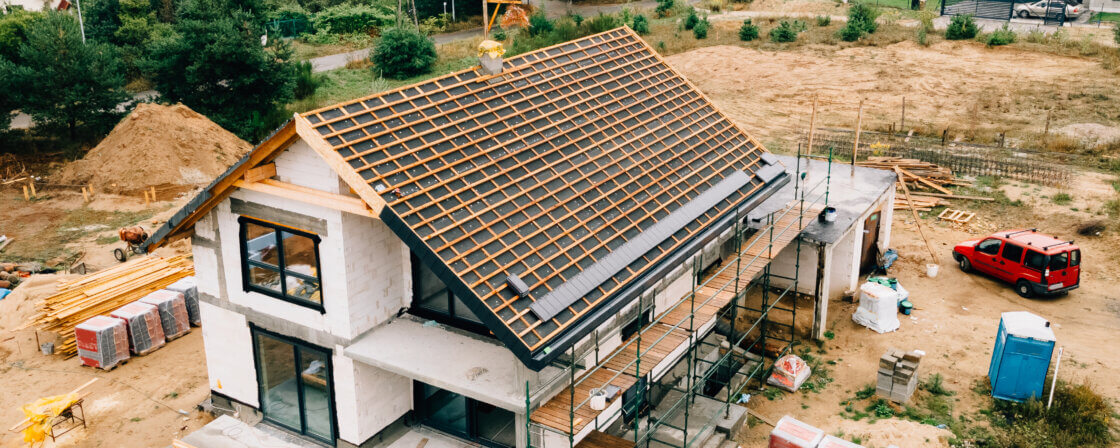Insufficient or unstable income
One of the most common reasons for mortgage rejection is low or unstable income. The bank always assesses the applicant’s ability to repay the loan, and if you have a short employment history, are working on a contract or work agreement, or are self-employed with a low tax return, for example, you may stumble.
According to the Czech National Bank’s rules , the repayment must not exceed a certain percentage of your income. This translates directly into the mortgage calculation, which each bank carries out according to its own internal model. In addition to income, expenses, other loans, leases or maintenance are also tracked.
If you are self-employed, be prepared for the bank to ask for the last 2 years of tax returns. It is advisable to optimise your income so that your net tax base matches reality.
Entry in the debtors’ register
A very common obstacle is also a record in one of the debtors’ registers – typically BRKI, NRKI or SOLUS. A record of late payment on a loan, credit card or overdraft can block your mortgage application completely, even if it was a one-off default in the past.
Banks automatically check these records with each application. Some are more benevolent, while others will reject an application with just a minor discrepancy.
Want to check that you have everything in order? Before you apply for a mortgage, we recommend that you request an extract from the registers and check that there are no negative records on you. If you find an error, you have the right to ask for it to be corrected.
Are you solving a similar problem?
Have you been refused a mortgage by your bank?
Have you ever had your mortgage rejected by your bank and you don’t know why? Or do you think the decision was not justified? In this case, you can contact us. We can help you evaluate whether the refusal was in accordance with the law and check the legal status of the property.
I want to help
- When you order, you know what you will get and how much it will cost.
- We handle everything online or in person at one of our 6 offices.
- We handle 8 out of 10 requests within 2 working days.
- We have specialists for every field of law.
High debt or foreclosure
If you have multiple consumer loans, leases, or even a foreclosure, you have little chance of a successful application. That’s because banks look at so-called DTI (debt-to-income) and DSTI (debt-service-to-income) ratios – that is, how much you owe in total and what percentage of your income goes to repayments.
To calculate your mortgage correctly, you must therefore always take into account all your debts. Even a seemingly small loan can result in a rejected application. A foreclosure is then automatically a reason for banks to reject you.
Unsuitable property as collateral
The bank also carefully examines the subject of the collateral. The mortgage is granted against the value of the property – but if the property does not meet the bank’s requirements, the bank may reject the application. Typical problems:
- Unregistered building in the Land Registry
- Property on someone else’s land
- Property in disrepair
- Lack of access or unclear ownership
For such cases, it is a good idea to deal with a lawyer early, especially for older houses or heritage properties.
Low equity
Currently, most banks require a minimum of 10-20% of the value of the property from their own funds. If you have less, you simply won’t get a mortgage.
According to Czech National Bank regulations, banks cannot normally grant a mortgage of 100% of the value of the collateral. So if you want to get a mortgage, you need to have some savings, use a second property as collateral, ask someone to act as a guarantor or use a combination with a building society.
Please note: Loans from family, credit or overdrafts are usually not included in the amount of your own funds.
Age and health of the applicant
Banks also consider age and life expectancy. For example, if an applicant is 60 years old and applies for a 30-year mortgage, the bank is likely to reject the application or significantly shorten the term.
There may also be problems for applicants with serious illnesses who are unable to take out life insurance. Because this is often a condition of loan approval.
Unsuitable co-applicant
Many applicants also involve their partner or parents in the mortgage. However, if the co-applicant is not creditworthy (e.g. low income, record on the register), this can ruin the whole procedure. It is always better to apply with someone who can improve your credit rating, otherwise you risk rejection.
Property valuation too low
Banks base their own valuation of the property, not the purchase price. So if the estimate comes out lower than the purchase price, you will have a ‘ financing gap’.
For example: you buy a flat for CZK 4,000,000, but the bank’s valuer only puts the value at CZK 3,700,000. If the LTV condition is 80%, you will only get a loan of CZK 2,960,000 – you have to pay the rest from your own resources. This not only affects the calculation of the mortgage, but overall it makes it more difficult to access finance.
The development of interest rates and legislative conditions
Mortgage interest rates rose dramatically in 2022 and 2023, which had a significant impact on housing affordability. A higher interest rate means a higher repayment and therefore a worse score in the ability to repay assessment.
Although rates have started to fall since 2024, it is still the case that their trend can significantly affect whether an applicant qualifies for a mortgage. Again, professional legal advice is in order, especially when refixing or refinancing.
Tip for article
Tip: There are cases where it pays to take out a mortgage on one spouse. Read our article to find out if this is the case for you.
How to prepare your mortgage and what to look out for?
Before you start your mortgage application, it’s definitely worth doing your homework. To get started , do an indicative mortgage calculation using an online calculator – this will give you an idea of the possible loan amount, the monthly repayment and the equity requirements. Next, check your credit record. If you have old records of non-performing loans, clear up the liabilities and ask for them to be deleted, otherwise it can make it much harder to get a loan. Don’t forget to make a financial provision, not only for the initial down payment, but also for related expenses such as property tax, land registry fees and legal fees. It is also important to check the legal status of the property – check the Land Registry for any easements or mortgages on the property. Finally, prepare complete and up-to-date documentation that you will be submitting to the bank, i.e. mainly income documents, employment contracts, tax returns and bank statements.
Summary
Getting a mortgage is not a given, and a bank may reject your application for a number of reasons. The main obstacles include insufficient or unstable income, a record on the debtors’ register, high debt or pending foreclosure, unsuitable property as collateral (e.g. not registered in the land registry or without access), low equity (less than 10-20% of the property value), age or poor health of the applicant, unsuitable co-applicant (e.g. with debts), too low a property valuation and negative interest rate trends. Before applying, it is advisable to carry out an indicative mortgage calculation, check the debtors’ registers, prepare your own funds, check the legal status of the property and provide full documentation.




